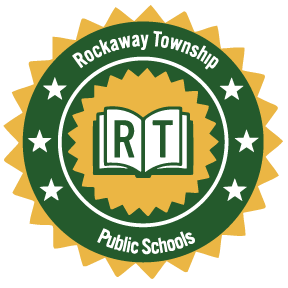Special Education Q & A
The following information is provided to give an overview of district programs and to answer questions regarding services in the district.
What is Special Education and who can receive it?
Special Education refers to a variety of services afforded to students who demonstrate a significant disability in their learning. This typically refers to children who are performing in school well below their grade level and for whom other academic interventions have not been successful. Nationally only about 12-13% of all school age children qualify for services.
How do you determine who is eligible?
Eligibility varies by state. In New Jersey, the determination is made by a Child Study Team (CST) made up of a Social Worker, Learning Disabilities Teacher Consultant and a School Psychologist. Using a variety of evaluation instruments, review of student’s records, interactions and observations, the CST determines whether a child meets the criteria required for a learning disability. It is important to note that medical doctors cannot determine eligibility. A doctor’s input, along with input from other professionals, will be considered by the CST, but ultimately only the CST can determine the presence of a disabling condition.
If your child is determined eligible for special education, an IEP (Individualized Education Program) team will meet and develop a plan to meet your child’s needs. This team consists of the parent, a general education teacher and a special education teacher, members of the CST and such other school staff as deemed needed.
What if my child is not eligible for special education?
If a child is not eligible for special education and related services, the CST, with your consent, will share their findings with school staff. Their suggestions may be used by the building-based Response To Intervention (RTI) to support your child in the general education classroom, or, if appropriate, the child may be referred to a 504 committee to determine eligibility for a 504 accommodation plan.
What services are available to students eligible for special education?
Preschool disabled classes
Elementary and Middle School special education programs which include:
Modifications and accommodations made in the general education setting
Support in general education (instructional or personal aide)
Supplemental Instruction (small group content support by a special education teacher)
Resource instruction in specific subject areas (may be in or out of the general education classroom)
Self-contained classes for children with significant educational and/or behavioral needs
Related services (these typically include speech, physical therapy, occupational therapy). Other than speech, the other related services are not provided as standalone services and must be included as part of a special education program in an IEP.
What about including named methodologies in an IEP?
While it is potentially possible to include a specific methodology in an IEP, the courts and the federal government have ruled or stated that they will not compel the inclusion of specific methodologies or that parents can demand the inclusion of specific methodologies in an IEP. IEP teams have the obligation to provide services and programs that are based on student needs and student performance data.
Additional Information
It is important to note that the concept underlying special education is to offer students services that provide what is referred to as a free and appropriate public education (FAPE). Special education is neither intended, nor designed, to provide the maximum services available. Special education is intended to provide appropriate services based on each child’s academic and/or behavioral needs as determined by the IEP Team, which provide access to education so that the student meets with success and progress.
If a parent has a dispute with services and/or programs regarding a child’s IEP, they should first try to resolve it with the Child Study Team case manager. If it is a dispute about the implementation of the IEP they may contact the Director of Special Education. It is important to note that school administrators have no authority to alter a Code compliant IEP. If these steps do not resolve the issues parents may contact the Office of Special Education Programs for information regarding mediation or Due Process rights. Please refer to the PRISE handbook referred to above. Additional information is contained in the Parental Rights in Special Education document found at the following link: https://www.nj.gov/education/specialed/form/prise/RevisedParentalRights(PRISE).pdf
